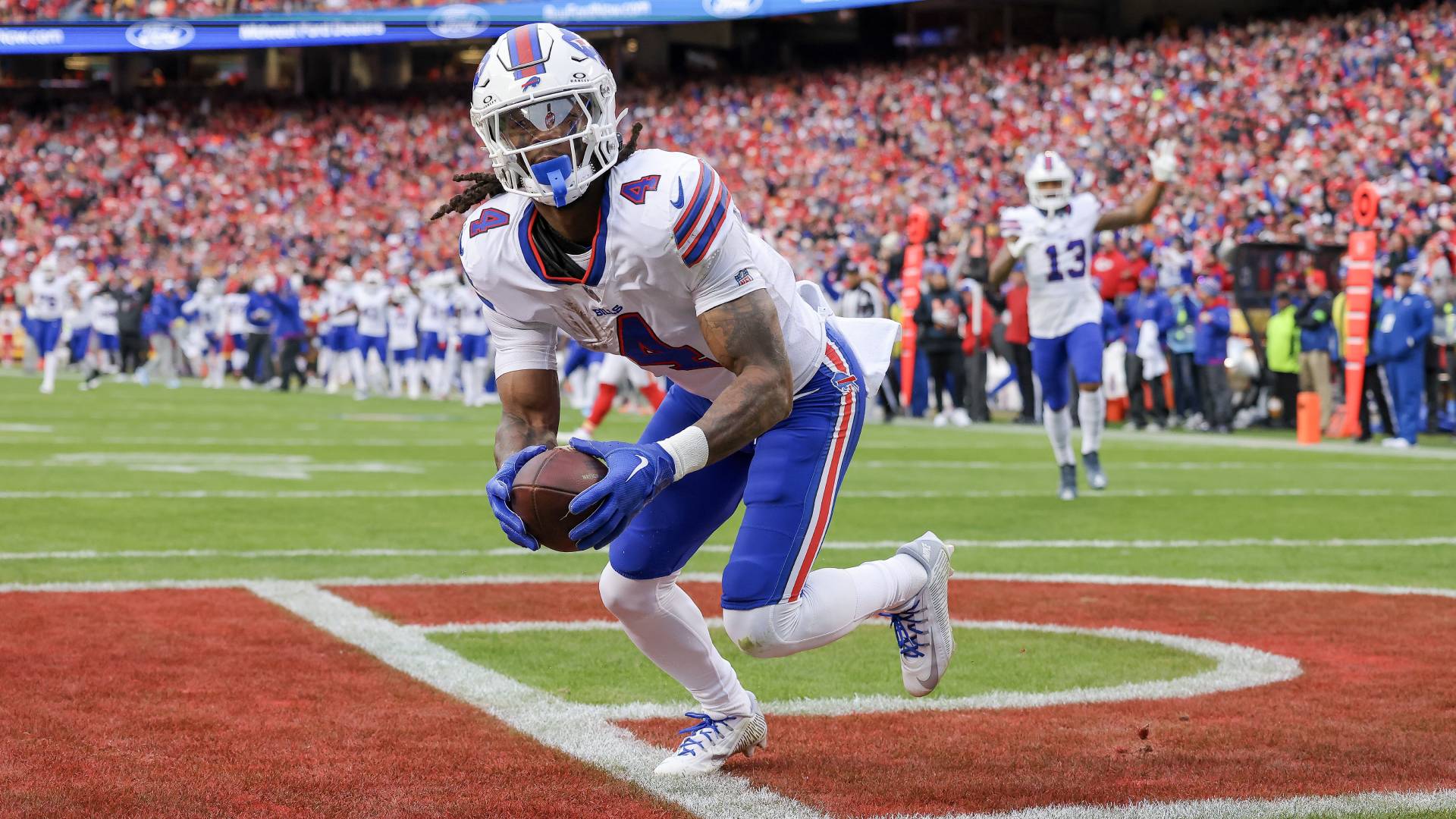In an NFL season where running backs (RBs) are increasingly undervalued, James Cook of the Buffalo Bills has become the focal point of a heated debate about the true worth of the position. After an anonymous former NFL quarterback publicly criticized Cook as “undeserving of a big payday,” his contract saga has transcended internal team politics—it now mirrors a systemic crisis in how the league values its ball carriers.

A Season of Contradictions for a Rising Star
James Cook, 24, ended the 2023 season with conflicting stats: 1,122 rushing yards (7th in the NFL), 12 runs of 20+ yards (4th), but also 4 fumbles—the most among top-tier RBs. While his breakaway speed helped the Bills maintain a balanced offense, critical mistakes (like a playoff fumble against the Chiefs) cast doubt on his reliability.
Compared to peers like Breece Hall (Jets), who led the NFL with 1,585 yards and 9 TDs, or Isiah Pacheco (Chiefs), a Super Bowl LVIII champion as a rookie, Cook’s impact feels muted. “He’s fast, but he’s not a game-changer,” an anonymous scout remarked.
The “Frozen” Running Back Market
Cook’s contract negotiations unfold against a bleak backdrop for RBs. Stars like Saquon Barkley (Eagles) and Josh Jacobs (Packers)—once seeking massive deals—settled for “team-friendly” contracts with reduced pay. The reasons? Short career spans, injury risks, and dependence on offensive systems make teams wary of long-term investments.
“You can’t pay a RB like a wide receiver or edge rusher,” explained former NFL GM Randy Mueller. “Their physical toll and shelf life make them high-risk assets.” For the Bills, the math is tougher: with just **8.2million∗∗incapspace(perSpotrac),meetingCook’spotentialtop−10RBsalary( 8.2million∗∗incapspace(perSpotrac),meetingCook’spotentialtop−10RBsalary( 12M/year) seems impossible.
Criticism from a “Ghost” in the Machine
The drama intensified when an unnamed ex-NFL QB slammed Cook on social media: “He’s done nothing but flash a few highlight runs. Paying him big would be suicide!” Fans split into factions: some called it a Bills-led smear campaign to lower Cook’s demands, others speculated about personal grudges.
Though the critic’s identity remains secret, rumors suggest it could be Tyrod Taylor (who clashed with Buffalo in 2017) or Nathan Peterman, infamous for his Bills-era meltdowns. “If it’s Peterman, his opinion is worthless,” fired back fan @BuffaloLoyal.
Silence and Subtext from Both Sides
Amid the chaos, Bills GM Brandon Beane stayed measured: “We value Cook’s contributions, but financial sustainability is key.” Cook, meanwhile, tweeted a vague “Focus on the grind…”—a seeming dismissal of the noise.
Analysts note parallels to the Bills’ 2022 standoff with Stefon Diggs, where media pressure preceded a lucrative extension. But unlike Diggs—a top WR—Cook lacks leverage in a replaceable position.
Dire Consequences of a Failed Deal
If negotiations collapse, the Bills face steep risks:
Holdout threat: Cook skipping training camp could derail offensive chemistry.
Overburdening Josh Allen: Losing Cook forces Allen to run more—a danger after he took 44 sacks in 2023.
Gambling on unproven backups: The Bills might rely on Ty Johnson or rookie Ray Davis, both untested as starters.
NFL history warns of such stalemates: Le’Veon Bell derailed his career with a 2018 holdout, while Ezekiel Elliott took a pay cut despite once being the Cowboys’ cornerstone.
The Bigger Picture: A Crisis Beyond Cook
James Cook’s saga isn’t just about a contract—it’s a microcosm of the running back’s plight in today’s NFL. They are unsung heroes bearing brutal workloads yet rarely rewarded accordingly. As the Bills juggle ambition and fiscal reality, Cook confronts a harsh truth: In a league obsessed with arms and pass rushers, the value of relentless legs remains a mystery.